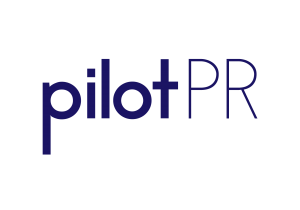The past two years of pandemic have enhanced the role of reputation for business and the c-Suite. Brands can no-longer fence-sit on critical issues, while for CEOs being visible is no longer optional.
The other reputational impact the pandemic and WFH has had is on team reputation. Remote working has made it harder for teams below the c-Suite to network, build a reputation with stakeholders beyond their immediate contacts, and share the results of the work they are doing internally.

Two groups of professionals I worked with recently (one team was from the same organisation, the other group was mixed) both said WFH had negatively impacted their visibility. Some respondents said remote working had made it hard to stay relevant. Others said relationship building was limited to direct stakeholders and connecting with important stakeholders beyond their immediate team was challenging.
Zoom. Teams. Google Meet. All amazing tools that make remote working possible, but they don’t replace the organic reputation building that happens when we share a workspace.
And it’s this negative impact on team profile that has turned reputation management into a team sport. Just like a brand or a CEO, your team can be strategic about its reputation: knowing what you all want the team to be known for, by whom, and what you want the results of your team reputation work to be.

So, in a world of hybrid working, where some stakeholders are WFH one/two/three/all days, workspace crossover not necessarily happening with the right people on the same day, and a combination of online and in-person tools to build your reputation on available to you and your team, how do you do it? And do it well?
Creating your reputation foundations
Broadly, the purpose of team reputation is to deepen the understanding of the important work you and your team does and to celebrate the results of that work. The benefits of doing it are that decision-makers understand the relevance of your work, so getting approval for a new project or extra budget is quicker and easier. Another is that other departments actually understand the work that you do and the impact is it having for the greater business.
So, as a team, spend some time defining:
- Why you’re building your team reputation
- Who you want to influence
- What you need to say (key messages)
- The platforms you’ll use
- Know how you’ll align your team reputation with your company’s brand positioning
The role of ‘I’ in team reputation
There are professionals out there who want to build their reputation but they feel uncomfortable with the spotlight being on just them. If this is you, working on your team’s reputation is a great way to overcome this barrier because it feels less about you and more about the team. Also, sharing responsibility and being accountable to others spreads the load and keeps you on track.
The role of ‘I’ in team reputation is:
- You’re all working towards a shared goal
- Everyone has their responsibility
- You agree timings and make it happen
- You’re motivated to do your part because you don’t want to let the team down

Aligning your team’s reputation work with your company’s positioning
When you’re working in-house, one of the aspects of your reputation work that you need to get right is aligning where you can with your employer’s positioning and messaging. Some in-house leaders are reluctant to build their reputation because they’re worried they’ll inadvertently do the wrong thing and told to stop by the comms team. You can overcome this by:
- Telling your communications team what you are doing and ask how you can support their messaging while asking about opportunities for your team to share the work you’re doing
- Pay attention to what they’re doing internally and on social platforms and looking at what can you be doing to support their work
- Aligning your messaging with the words and phrases the communications team uses to make it consistent

Tips for measuring your impact
By putting in the foundational work and being clear on the results you and your team want, you’ll know what right looks like and be able to measure your success. By knowing who your audience is, you’ll know if you reached them. Knowing your messaging from the beginning will enable you to measure if you used it. Knowing the results you want from your team reputation strategy will mean your success is easy to identify.
Like all reputation work, team reputation is an organic entity that evolves and grows as you work on it. So regular check-ins on your progress and refining what’s not working is worth it and will keep you all on track.
While remote working and now hybrid working both have challenges for professionals who want to be visible and teams who want to build a reputation, now is an opportunity to be strategic and proactive about how stakeholders see you and the work your team does. Access to in-person and online platforms amplifies the opportunities your team has to build a reputation, one that gets the results your team wants and ultimately makes the work you need to do easier and its impact celebrated across the business you support. It’s a great time to start.
Angela Cross is a reputation strategist who works with c-Suite leaders and brands to build and protect their reputations through PR, corporate social media, industry communication, and stakeholder engagement. If you would like to build your reputation with purpose and authority, email her here.
You can also download her guide to overcoming the most common barriers to building your reputation here.



